August 12, 2016 •
House Clerk’s Office Sends Out Late Notices to Lobbyists in Error
On August 11, the U.S. House clerk’s office erroneously sent out a group of emails to lobbyists informing them their contribution reports were late, according to the National Law Review. However, many of the registrants receiving the emails had timely […]
 On August 11, the U.S. House clerk’s office erroneously sent out a group of emails to lobbyists informing them their contribution reports were late, according to the National Law Review. However, many of the registrants receiving the emails had timely filed their 2016 Mid-Year LD-203 contribution reports, which were due August 1. The Review reports it is unclear how many late notices were sent in error. The House clerk’s office is aware of the error.
On August 11, the U.S. House clerk’s office erroneously sent out a group of emails to lobbyists informing them their contribution reports were late, according to the National Law Review. However, many of the registrants receiving the emails had timely filed their 2016 Mid-Year LD-203 contribution reports, which were due August 1. The Review reports it is unclear how many late notices were sent in error. The House clerk’s office is aware of the error.
July 15, 2016 •
Utah Special Session Adjourns
On July 13, the Utah Legislature adjourned its special session sine die. Lawmakers voted for the state to allocate up to $10 million in funds for a new stadium in the Fairpark area of Salt Lake City. An additional bill […]
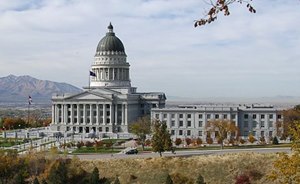
On July 13, the Utah Legislature adjourned its special session sine die.
Lawmakers voted for the state to allocate up to $10 million in funds for a new stadium in the Fairpark area of Salt Lake City.
An additional bill passed during the one-day special session regulates the use of personal drones over wildfires.
Photo of the Utah State Capitol by Scott Catron on Wikimedia Commons.
July 1, 2016 •
Ontario, Canada’s Lobbying Law Amendments Take Effect Today
Today Ontario’s Office of the Integrity Commissioner will begin enforcing a new lobbying law for the province. On December 9, 2014, the Legislative Assembly had passed an omnibus bill with changes to the province’s Lobbyists Registration Act, 1998. The law […]
 Today Ontario’s Office of the Integrity Commissioner will begin enforcing a new lobbying law for the province.
Today Ontario’s Office of the Integrity Commissioner will begin enforcing a new lobbying law for the province.
On December 9, 2014, the Legislative Assembly had passed an omnibus bill with changes to the province’s Lobbyists Registration Act, 1998. The law came into force by proclamation of the lieutenant governor. Schedule 8 of Bill 8, the Public Sector and MPP Accountability and Transparency Act, 2014, gives the Ontario Integrity Commissioner as Lobbyist Registrar new investigative and enforcement power for violations. Individuals found in violation can be prohibited from lobbying for up to two years.
Additional changes include a streamlined registration form for certain companies, a lower threshold registration for in-house lobbyists, and new questions on registration forms.
May 23, 2016 •
RI Launches Informational Online Interactive Tool for State’s Lobbying and Public Meeting Information
On May 19, Rhode Island Secretary of State Nellie M. Gorbea unveiled the launch of Open Government Interactive, an online tool to better understand and interact with the state’s public data, which includes lobbying information. Data visualization is provided through […]
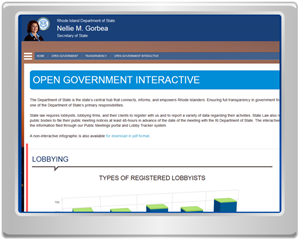 On May 19, Rhode Island Secretary of State Nellie M. Gorbea unveiled the launch of Open Government Interactive, an online tool to better understand and interact with the state’s public data, which includes lobbying information. Data visualization is provided through interactive graphs displaying the number and types of lobbyists registered, of organizations hiring lobbyists, and of lobbying relationships relative to legislative topics.
On May 19, Rhode Island Secretary of State Nellie M. Gorbea unveiled the launch of Open Government Interactive, an online tool to better understand and interact with the state’s public data, which includes lobbying information. Data visualization is provided through interactive graphs displaying the number and types of lobbyists registered, of organizations hiring lobbyists, and of lobbying relationships relative to legislative topics.
The state also includes other material with this interactive online tool, including public meeting information. “It is my belief that government must be effective, transparent, and accountable to the people it serves in order to succeed. Part of this transparency comes with the general public having access to information about meetings happening among our government bodies and knowledge of who is lobbying their elected officials,” Gorbea said in her press release. All data published is from 2011-2015.
May 19, 2016 •
Utah Special Session Adjourns
On May 18, the 2016 second special session of the 61st Utah Legislature adjourned sine die. The one-day special session restored funding to various educational programs throughout the state. The funding had been vetoed by Gov. Gary Herbert earlier this […]
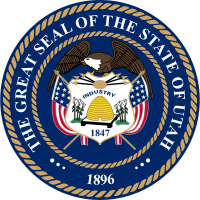 On May 18, the 2016 second special session of the 61st Utah Legislature adjourned sine die.
On May 18, the 2016 second special session of the 61st Utah Legislature adjourned sine die.
The one-day special session restored funding to various educational programs throughout the state. The funding had been vetoed by Gov. Gary Herbert earlier this year.
May 3, 2016 •
Race for a Cure — We Have to Beat Breast Cancer
You know I hate cancer. No one wants to be in the club, yet every day someone else is initiated without a request. It has been three years since we had our first Race for the Cure team for the […]
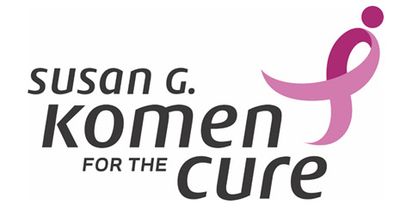 You know I hate cancer. No one wants to be in the club, yet every day someone else is initiated without a request.
You know I hate cancer. No one wants to be in the club, yet every day someone else is initiated without a request.
It has been three years since we had our first Race for the Cure team for the Susan G. Komen event in Akron. Well, I have re-signed up our ST8PACS team on the site and registered to participate in the 5K walk. This year’s event will be Saturday, July 23 at Canal Park.
Why are we involved?
 One in eight women in the US will be diagnosed with breast cancer.
One in eight women in the US will be diagnosed with breast cancer.
Because every minute someone dies of breast cancer.
Breast cancer knows no boundaries—be it age, gender, socio-economic, or geographic location.
Consider going to http://neohio.info-komen.org to register and join the ST8PACS team by contributing.
Until next month remember, in 1980, the five-year survival rate for women diagnosed with early stage breast cancer was 74%. Today it is 99% because so many people have helped to raise money for awareness, having mammograms, and the research to help end breast cancer.
Thank you.
President and CEO
@elizabethbartz
February 8, 2016 •
Special Legislative Session Called in Louisiana Before State’s Regular 2016 Session
On February 5, Louisiana Gov. John Bel Edwards called a special session of the Legislature to meet on February 14. The purpose of the session is to focus on fiscal issues concerning the state, including a call for reductions in […]
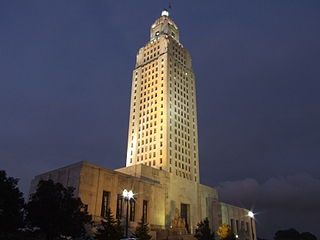 On February 5, Louisiana Gov. John Bel Edwards called a special session of the Legislature to meet on February 14. The purpose of the session is to focus on fiscal issues concerning the state, including a call for reductions in the state’s ordinary operating expenses, new legislation affecting rates and brackets for state income tax, new legislation with regard to state contracts, and new legislation addressing the state sales tax on telecommunications services. Additionally, the governor is asking for a state constitutional amendment relating to deductible items in computing state income tax. In all, the session will address 36 items.
On February 5, Louisiana Gov. John Bel Edwards called a special session of the Legislature to meet on February 14. The purpose of the session is to focus on fiscal issues concerning the state, including a call for reductions in the state’s ordinary operating expenses, new legislation affecting rates and brackets for state income tax, new legislation with regard to state contracts, and new legislation addressing the state sales tax on telecommunications services. Additionally, the governor is asking for a state constitutional amendment relating to deductible items in computing state income tax. In all, the session will address 36 items.
The regular session of the Legislature is not scheduled to meet until March 14. The governor’s proclamation specifies the special session is to extend no later than March 9.
Photo of the Louisiana State Capitol by Bluepoint951 on Wikimedia Commons.
February 3, 2016 •
RI Bill Revamps State’s Lobbying Law
On January 28, legislation was introduced in the Rhode Island General Assembly to repeal the state’s current lobbying law and replace it with a new system of lobbyist regulation. The Rhode Island Lobbying Reform Act, H7388, creates one set of […]
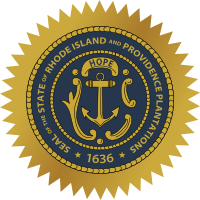 On January 28, legislation was introduced in the Rhode Island General Assembly to repeal the state’s current lobbying law and replace it with a new system of lobbyist regulation. The Rhode Island Lobbying Reform Act, H7388, creates one set of rules for lobbying both the executive and legislative branches of state government. Additional changes include increases in fines, redefinitions of lobbying, lobbyists, and compensation, and allowing the Secretary of State to have subpoena power to investigate violations.
On January 28, legislation was introduced in the Rhode Island General Assembly to repeal the state’s current lobbying law and replace it with a new system of lobbyist regulation. The Rhode Island Lobbying Reform Act, H7388, creates one set of rules for lobbying both the executive and legislative branches of state government. Additional changes include increases in fines, redefinitions of lobbying, lobbyists, and compensation, and allowing the Secretary of State to have subpoena power to investigate violations.
If passed, the law would take effect on January 1, 2017.
January 20, 2016 •
NYT: President “Seriously Considering” Requiring Disclosure of Political Contributions by Federal Contractors
President Obama could soon issue an executive order requiring federal contractors to disclose political campaign contributions, according to the New York Times. On January 19, White House officials said the president is “seriously considering” the order, as reported by the […]
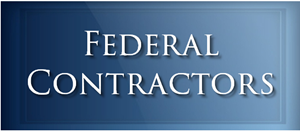 President Obama could soon issue an executive order requiring federal contractors to disclose political campaign contributions, according to the New York Times. On January 19, White House officials said the president is “seriously considering” the order, as reported by the paper. The order has been pushed by many outside groups and by Democratic members of congress, who have in the past, and as recently as January 7th, presented the president with letters urging executive action.
President Obama could soon issue an executive order requiring federal contractors to disclose political campaign contributions, according to the New York Times. On January 19, White House officials said the president is “seriously considering” the order, as reported by the paper. The order has been pushed by many outside groups and by Democratic members of congress, who have in the past, and as recently as January 7th, presented the president with letters urging executive action.
Those opposed to an executive order argue, among other things, disclosure requirements encroach on free speech and are politically motivated. “The real goal of the disclosure proponents is to harass, intimidate and silence those with whom they disagree,” Blair Latoff Holmes, a spokeswoman for the U.S. Chamber of Commerce, is quoted as saying in the Times.
December 23, 2015 •
2016 Omnibus Appropriations Bill’s Campaign Finance Changes
Among the riders in the federal 2016 Omnibus Appropriations bill passed into law on December 18, 2015, were two provisions affecting campaign finance. Congress explicitly prohibited the Internal Revenue Service from making new rules concerning the political speech or activity […]
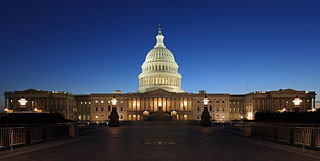 Among the riders in the federal 2016 Omnibus Appropriations bill passed into law on December 18, 2015, were two provisions affecting campaign finance. Congress explicitly prohibited the Internal Revenue Service from making new rules concerning the political speech or activity of 501(c)(4) organizations. The legislation also prohibits the Securities and Exchange Commission from issuing regulations requiring corporations to disclose their political activity to their shareholders.
Among the riders in the federal 2016 Omnibus Appropriations bill passed into law on December 18, 2015, were two provisions affecting campaign finance. Congress explicitly prohibited the Internal Revenue Service from making new rules concerning the political speech or activity of 501(c)(4) organizations. The legislation also prohibits the Securities and Exchange Commission from issuing regulations requiring corporations to disclose their political activity to their shareholders.
The Senate’s version of the Financial Services and General Government Appropriations Act, 2016, Senate Bill 1910, contained language altering the law regarding coordination between candidates and political parties. However, opposition from both parties prevented this rider making it in the final passed bill. The final bill also did not include a rider from House Resolution 2995, the House’s version of the bill, which would have barred the use of funds to recommend or require any entity submitting an offer for a federal contract to disclose specified political contributions as a condition of submitting the offer.
Photo of the United States Capitol by Martin Falbisoner on Wikimedia Commons.
September 11, 2015 •
California Bill Requiring Disclosure of Government Officials’ Travel Sent to Governor
On September 10, a bill requiring disclosure of funding for California government officials’ travel was sent by the Legislature to the Governor. Senate Bill 21 requires a nonprofit organization paying for the actual costs of travel for an elected state […]
 On September 10, a bill requiring disclosure of funding for California government officials’ travel was sent by the Legislature to the Governor. Senate Bill 21 requires a nonprofit organization paying for the actual costs of travel for an elected state officer or local elected officeholder to disclose the names of donors responsible for funding the payments. The legislation also requires a person who receives a gift of a travel payment from any source to report the travel destination on his or her statement of economic interests.
On September 10, a bill requiring disclosure of funding for California government officials’ travel was sent by the Legislature to the Governor. Senate Bill 21 requires a nonprofit organization paying for the actual costs of travel for an elected state officer or local elected officeholder to disclose the names of donors responsible for funding the payments. The legislation also requires a person who receives a gift of a travel payment from any source to report the travel destination on his or her statement of economic interests.
August 10, 2015 •
Maine Supreme Judicial Court Says LePage’s 65 Vetoes Too Late
On August 6, the Maine Supreme Judicial Court issued an opinion finding 65 bills from the 2015 legislative session were vetoed by Gov. Paul LePage too late to prevent the legislation from taking effect. Last month, the governor had returned […]
 On August 6, the Maine Supreme Judicial Court issued an opinion finding 65 bills from the 2015 legislative session were vetoed by Gov. Paul LePage too late to prevent the legislation from taking effect.
On August 6, the Maine Supreme Judicial Court issued an opinion finding 65 bills from the 2015 legislative session were vetoed by Gov. Paul LePage too late to prevent the legislation from taking effect.
Last month, the governor had returned the 65 bills to the Legislature on July 16, the last day of the session. However, the bills were returned beyond the 10 days, excluding Sundays, a governor has to veto legislation once he or she receives the bills.The court found the bills were beyond the ten days provided for gubernatorial objection and became law effective ninety days after the adjournment sine die of the Legislature, except where enacted as emergency legislation.
The opinion was made at the request of the governor.
April 28, 2015 •
Montana Legislature Adjourns
The Montana Senate and the House both adjourned sine die on April 28, 2015. Governor Steve Bullock, who does not have a pocket veto, has 10 days upon delivery to sign, veto, or recommend amendments to bills. The Legislature, which […]
 The Montana Senate and the House both adjourned sine die on April 28, 2015.
The Montana Senate and the House both adjourned sine die on April 28, 2015.
Governor Steve Bullock, who does not have a pocket veto, has 10 days upon delivery to sign, veto, or recommend amendments to bills. The Legislature, which meets in regular session for 90 working days in every odd-numbered year, will have its next regular session in 2017.
Photo of the Montana State Capitol by Maksim on Wikimedia Commons.
March 16, 2015 •
Utah Legislature Adjourns
The Utah Legislature adjourned its 2015 session sine die on March 12, 2015. Governor Gary Herbert has until April 1 to veto or sign legislation. The Governor does not possess a pocket veto. The normal effective date for bills passed […]
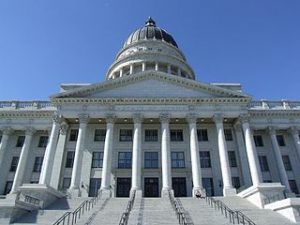 The Utah Legislature adjourned its 2015 session sine die on March 12, 2015. Governor Gary Herbert has until April 1 to veto or sign legislation. The Governor does not possess a pocket veto. The normal effective date for bills passed this year is May 12.
The Utah Legislature adjourned its 2015 session sine die on March 12, 2015. Governor Gary Herbert has until April 1 to veto or sign legislation. The Governor does not possess a pocket veto. The normal effective date for bills passed this year is May 12.
Photo of the Utah State Capitol by Robert Cutts on Wikimedia Commons.
State and Federal Communications, Inc. provides research and consulting services for government relations professionals on lobbying laws, procurement lobbying laws, political contribution laws in the United States and Canada. Learn more by visiting stateandfed.com.

